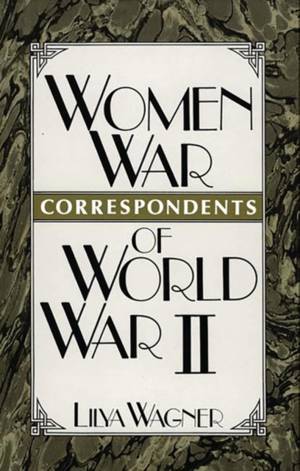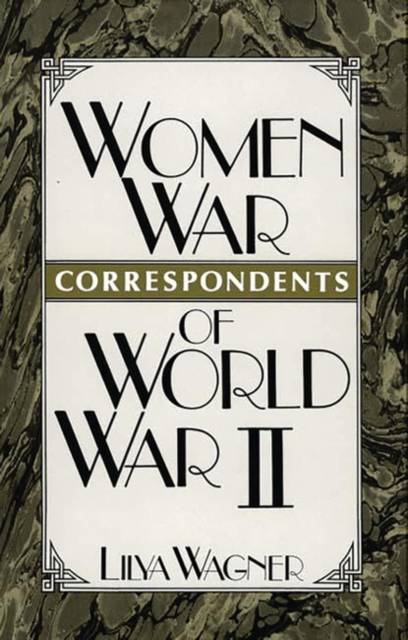
- Afhalen na 1 uur in een winkel met voorraad
- Gratis thuislevering in België vanaf € 30
- Ruim aanbod met 7 miljoen producten
- Afhalen na 1 uur in een winkel met voorraad
- Gratis thuislevering in België vanaf € 30
- Ruim aanbod met 7 miljoen producten
Omschrijving
During World War II, women correspondents wanted to be a part of the dramatic and exhilarating scene of wartime conflict as much as their male colleagues. They reported from the war scene because that was where the big story was. This study is an important part of the growing literature which deals with women in journalism. The women who were interviewed were asked about their experiences, including conditions under which they reported, the types of stories they wrote, and their accomplishments as journalists. Those studied were largely newspaper or wire service reporters who were at the front. A few others who wrote for magazines are included because of particularly interesting experiences or personalities. The obstacles that women correspondents faced are recounted here. For example, they found it difficult to get passports from the State Department and accreditation from the War Department. They faced antagonism from certain generals and sometimes bias and fear of competition from their male colleagues. On the other hand, many women discuss the help and support they received from men at the front.
Women War Correspondents of World War II is an in-depth analysis of the life of the woman correspondent. The problems of censorship, a war fought on different fronts, and the dangers of then-modern warfare are recounted. Many women entered the field through newspaper jobs vacated by men who left for the front; they then worked their way into becoming war correspondents. For the most part they did not expect preferential treatment and avoided exceptional notice. According to their own accounts, they encountered problems unique to their sex, but were adept at handling the problems and were professional in their work.Specificaties
Betrokkenen
- Auteur(s):
- Uitgeverij:
Inhoud
- Aantal bladzijden:
- 187
- Taal:
- Engels
- Reeks:
Eigenschappen
- Productcode (EAN):
- 9780313262876
- Verschijningsdatum:
- 25/10/1989
- Uitvoering:
- Hardcover
- Formaat:
- Genaaid
- Afmetingen:
- 163 mm x 243 mm
- Gewicht:
- 476 g

Alleen bij Standaard Boekhandel
Beoordelingen
We publiceren alleen reviews die voldoen aan de voorwaarden voor reviews. Bekijk onze voorwaarden voor reviews.











